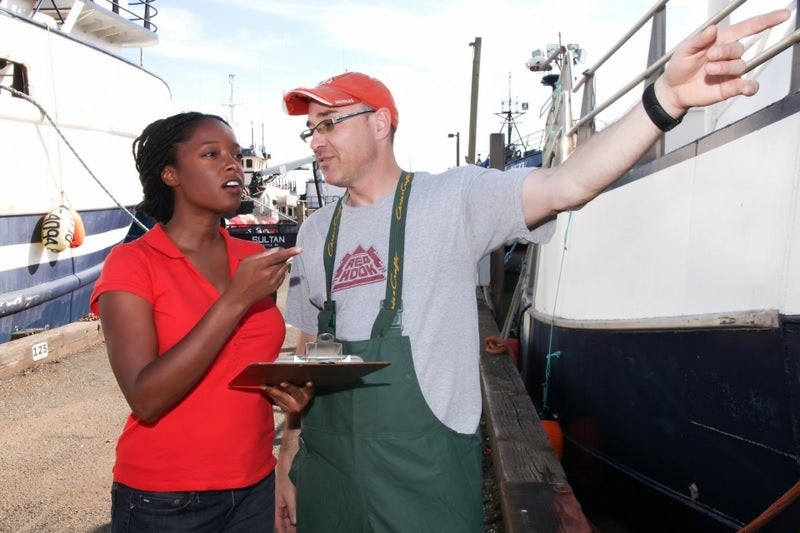Helping shape the future of ocean science

Kiki Jenkins in front of the whale fin statues at Pacific Science Center in Seattle.
Courtesy Lyda Hill Philanthropies
Lekelia “Kiki” Jenkins has always loved nature. She grew up on the East Coast and spent her summers fishing and crabbing in the Chesapeake Bay. That passion led her to a career in ocean studies and marine conservation. Now she will contribute her knowledge as part of a prestigious organization. Jenkins has been appointed to the Ocean Studies Board (OSB) of the National Academies of Sciences, Engineering, and Medicine (NASEM).
“I'm really looking forward to working with the National Academies of Sciences, Engineering, and Medicine,” said Jenkins, associate professor and Human and Social Dimensions of Science and Technology doctoral program chair in the School for the Future of Innovation in Society. “Every time I've engaged with NASEM in the past, it's been stimulating, important work that was also a lot of fun. I'm very excited to be in this position to learn and grow.”
The Ocean Studies Board researches the science, policies and infrastructure necessary to manage and conserve coastal and marine environments and their resources. They have studied the ocean's role in the global climate system, and technological and infrastructural needs for ocean research.
“Reports from OSB have driven policy changes,” said Jenkins. “Working on the Ocean Studies Board will be a great way to stay abreast of the latest and most crucial ocean science questions and findings, and will help shape the future of ocean science in the United States.”
One of the areas where Jenkins will be able to contribute her expertise is in fisheries science, management and policy. Fisheries have been the subject of much of her research. Jenkins has served in the National Marine Fisheries Service’s Office of International Affairs. She has worked to develop solutions for sustainable fisheries and study the best practices for fisheries learning exchanges. Jenkins’ research has helped change regulations, including on the Pacific coast, allowing fishers to switch to more sustainable fishing gear without having to purchase a new license. Her work has also helped people identify the most innovative fishers to partner with to try to create and invent new bycatch reduction technologies.

Jenkins has served in the National Marine Fisheries Service’s Office of International Affairs helping to develop solutions for sustainable fisheries and study the best practices for fisheries learning exchanges. Photo courtesy Lekelia Jenkins
With her vast background of work, her social science expertise and her interdisciplinary training, Jenkins will help the Ocean Studies Board serve the needs of the country. She is also looking forward to bringing more diversity to the board.
“Being an African American woman, my diversity on the board is important,” said Jenkins. “Ocean sciences and ocean studies, like many science fields, have quite a ways to go in terms of diversity. I see this as an important step forward for diversity in STEM fields, and an important step forward for my career to be in the echelons of this high level of science in our country.”
More Science and technology

Hack like you 'meme' it
What do pepperoni pizza, cat memes and an online dojo have in common?It turns out, these are all essential elements of a great…

ASU professor breeds new tomato variety, the 'Desert Dew'
In an era defined by climate volatility and resource scarcity, researchers are developing crops that can survive — and thrive —…

Science meets play: ASU researcher makes developmental science hands-on for families
On a Friday morning at the Edna Vihel Arts Center in Tempe, toddlers dip paint brushes into bright colors, decorating paper…

